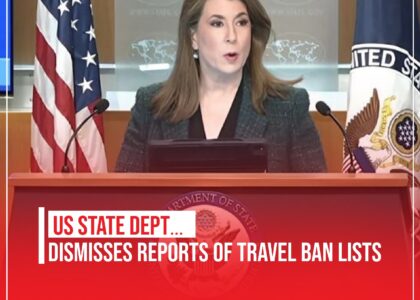The concept of birthright citizenship has long been a cornerstone of the United States Constitution, ensuring that anyone born on U.S. soil is automatically a citizen. It is an enduring principle enshrined in the 14th Amendment, providing equal protection under the law for all individuals, regardless of their parentage. However, the future of this constitutional guarantee is now under scrutiny, as former President Donald Trump proposes changes that could radically redefine the way citizenship is granted in the United States.
At Mansory Immigration Consultants, we aim to help individuals navigate complex immigration laws while providing timely insights into policy changes. This article explores the origins of U.S. birthright citizenship, its legal implications, and how potential reforms could impact immigrants and their families.
The Historical Foundation of Birthright Citizenship
Birthright citizenship in the U.S. originated as a response to one of the darkest chapters in American history. It was explicitly designed to undo the Supreme Court’s infamous 1857 Dred Scott decision, which held that no descendant of enslaved people could be a U.S. citizen. Following the Civil War, the 13th Amendment abolished slavery, and the 14th Amendment, ratified in 1868, ensured citizenship for all individuals born on U.S. soil.
The critical text of the 14th Amendment reads:
“All persons born or naturalized in the United States, and subject to the jurisdiction thereof, are citizens of the United States and of the State wherein they reside.”
This unambiguous language set the standard for automatic citizenship by birth, eliminating distinctions based on race, ethnicity, or the status of an individual’s parents. The amendment was a pivotal step in rebuilding a nation torn apart by slavery and civil strife, reaffirming the equality of all people under the law.
Trump’s Proposed Challenge to Birthright Citizenship
During his 2024 presidential campaign, Donald Trump announced plans to challenge birthright citizenship via an executive order. He has argued that the longstanding interpretation of the 14th Amendment is based on a “historical myth” and seeks to end automatic citizenship for children born in the U.S. to undocumented immigrants.
Trump’s proposal involves directing federal agencies to reinterpret the 14th Amendment, asserting that the phrase “subject to the jurisdiction thereof” excludes children of undocumented immigrants. Such an action would likely lead to legal battles, as constitutional amendments take precedence over executive orders in the U.S. legal system.
Legal and Logistical Challenges
The most significant hurdle to Trump’s proposal is the strong precedent supporting birthright citizenship. The Supreme Court case United States v. Wong Kim Ark (1898) is the most notable example, where the court ruled that children born in the U.S. to non-citizen parents are entitled to citizenship under the 14th Amendment.
Efforts to reinterpret the amendment would likely lead to prolonged legal battles and could even require a constitutional amendment—a process that demands overwhelming support in Congress and ratification by three-fourths of state legislatures. Historically, constitutional amendments are exceptionally challenging to enact, making this path an uphill battle.
Why the U.S. Upholds Birthright Citizenship
The principle of birthright citizenship aligns with the nation’s founding ideals of equality and inclusion. It is rooted in English common law, which held that anyone born within the sovereign’s territory was automatically a subject of that sovereign. This concept was adapted to the U.S. Constitution to ensure fairness and equal treatment.
Moreover, birthright citizenship prevents the creation of a permanent underclass of stateless individuals, as seen in some countries that deny citizenship to children born to immigrant parents. By granting citizenship at birth, the U.S. ensures that all individuals have access to the rights and protections afforded by the Constitution, contributing to social stability and integration.
International Context
While birthright citizenship remains a hallmark of U.S. law, other countries have moved away from this principle. For instance, the United Kingdom ended automatic birthright citizenship in 1981, requiring at least one parent to hold citizenship or legal residency. However, many nations in the Americas, including Canada and Mexico, still adhere to the principle of jus soli, or “right of the soil,” granting citizenship to anyone born on their territory.
The Implications of Ending Birthright Citizenship
If birthright citizenship were repealed or reinterpreted, the consequences would be far-reaching.
Legal and Social Consequences
- Stateless Children
Children born in the U.S. to undocumented immigrants could become stateless if their parents’ countries of origin do not automatically confer citizenship. Stateless individuals face significant challenges, including limited access to education, healthcare, and employment. - Increased Legal Challenges
Revoking birthright citizenship would likely lead to legal disputes over the status of millions of individuals, creating confusion and overwhelming immigration courts. - Impact on Immigrant Families
Many families could face separation, as parents without legal status may be deported while their U.S.-born children are forced to remain in the country. This would exacerbate existing humanitarian concerns about the treatment of immigrant families.
Economic Ramifications
Ending birthright citizenship could also have economic consequences. Immigrants contribute significantly to the U.S. economy through their labor and taxes. Restricting citizenship could discourage immigration and reduce the workforce, negatively affecting industries that rely on immigrant labor.
Why the Debate Matters for Immigrants
As immigration consultants, we understand that policies surrounding birthright citizenship directly impact the lives of our clients and their families. The principle of jus soli has been a beacon of hope for generations of immigrants seeking a better future for their children. Repealing or restricting this right would fundamentally alter the U.S. immigration landscape.
What Immigrants Should Know
For families concerned about potential changes to birthright citizenship laws, staying informed is crucial. Here are a few steps you can take:
- Consult Legal Experts: Seek advice from qualified immigration lawyers or consultants to understand your rights and options.
- Stay Updated: Follow news and updates about proposed policy changes, as these can have immediate implications for your family.
- Plan Ahead: If you are planning to immigrate to the U.S., consider the potential legal challenges and prepare accordingly.
Also Read: CDA Announces Residential Plots in Sector C-14 for Overseas Pakistanis
Conclusion
The debate over birthright citizenship highlights the evolving nature of immigration policy in the U.S. While the 14th Amendment guarantees citizenship for all individuals born on American soil, proposed changes could reshape this foundational principle.
At Mansory Immigration Consultants, we are committed to helping immigrants navigate these uncertain times. Whether you are seeking to understand your rights, apply for a visa, or explore pathways to citizenship, our team is here to guide you every step of the way.
As the conversation around birthright citizenship continues, it is essential to remain informed and proactive. The principles of equality and opportunity that have long defined the U.S. must be preserved to ensure a brighter future for all.
For more insights and updates on immigration policy, contact us today at Mansory Immigration Consultants. Together, we can help you achieve your American dream.





